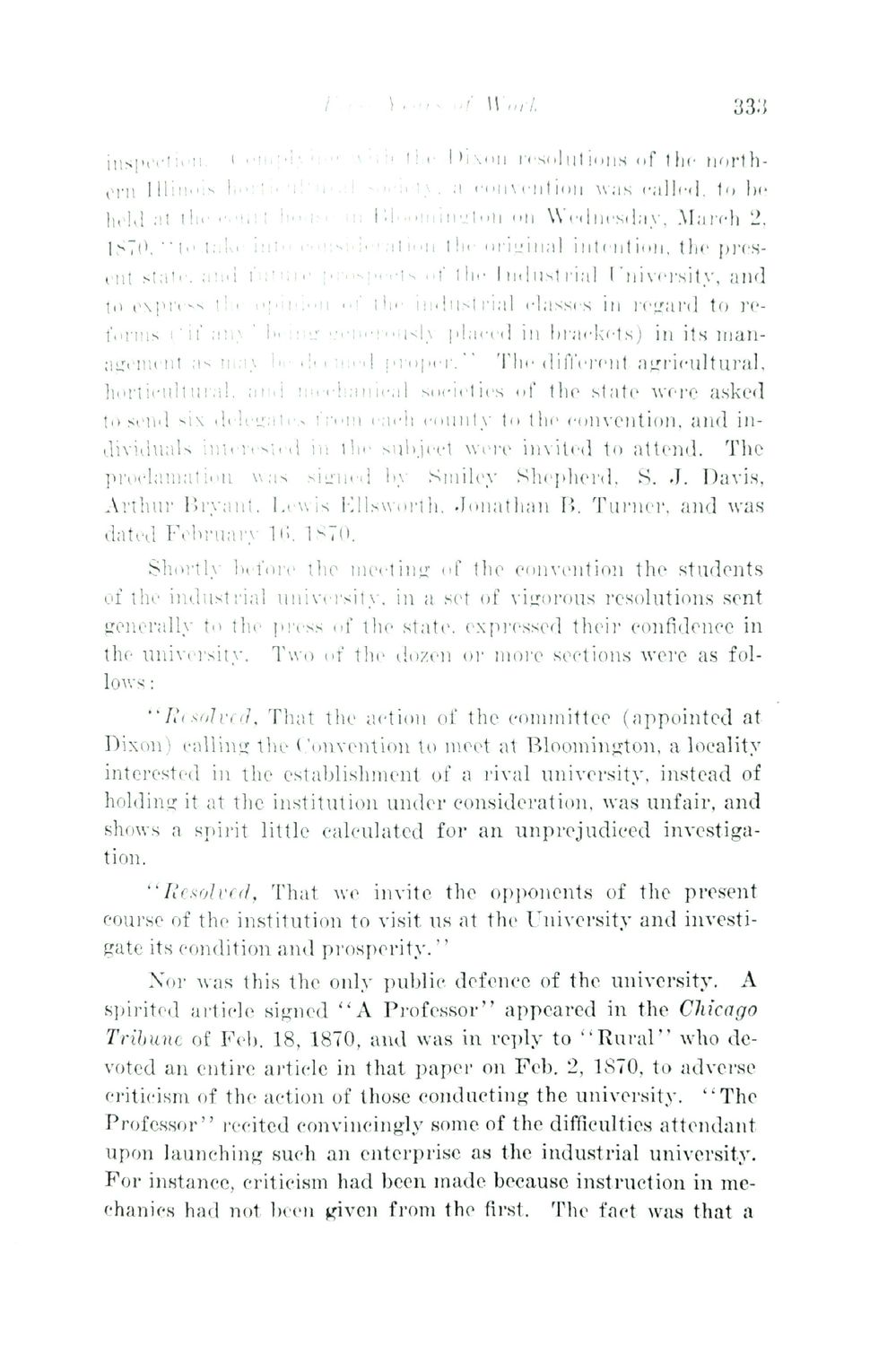| |
| |
Caption: Book - History of the University (Powell)
This is a reduced-resolution page image for fast online browsing.

EXTRACTED TEXT FROM PAGE:
First Years of Work 333 inspection. Complying with the Dixon resolutions of the northern Illinois horticultural society, a convention was called, to be held at the court house in Bloomington on Wednesday, March 2, 1870, "to take into consideration the original intention, the present state, and future prospects of the Industrial University, and to express the opinion of the industrial classes in regard to reforms ('if any* being generously placed in brackets) in its management as may be deemed proper.'? The different agricultural, horticultural, and mechanical societies of the state were asked to send six delegates from each county to the convention, and individuals interested in the subject were invited to attend. The proclamation was signed by Smiley Shepherd, S. J. Davis, Arthur Bryant, Lewis Ellsworth, Jonathan B. Turner, and was dated February 16,1870. Shortly before the meeting of the convention the students of the industrial university, in a set of vigorous resolutions sent generally to the press of the state, expressed their confidence in the university. Two of the dozen or more sections were as follows: "Resolved, That the action of the committee (appointed at Dixon) calling the Convention to meet at Bloomington, a locality interested in the establishment of a rival university, instead of holding it at the institution under consideration, was unfair, and shows a spirit little calculated for an unprejudiced investigation. "Resolved, That we invite the opponents of the present course of the institution to visit us at the University and investigate its condition and prosperity. j Nor was this the only public defence of the university. A spirited article signed " A Professor'' appeared in the Chicago Tribune of Feb. 18, 1870, and was in reply to "Rural" who devoted an entire article in that paper on Feb. 2, 1870, to adverse criticism of the action of those conducting the university. "The Professor" recited convincingly some of the difficulties attendant upon launching such an enterprise as the industrial university. For instance, criticism had been made because instruction in mechanics had not been given from the first. The fact was that a
| |